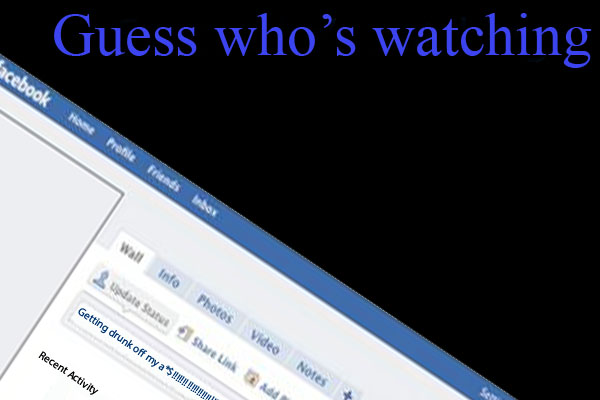Guess who’s watching…
Employers are checking Facebook before hiring

October 6, 2011
The royal blue masthead is so famous that even large businesses have taken notice. That lowercase f in the box is no longer the symbol of just gossip and checking up on friends.
“Creeping” on people on Facebook has become a helpful tool for employers to use before hiring a new employee. Principal Mike Williams says he uses the social media tool to scope out new employees.
“Information is power,” Williams said, “I usually browse Facebook to see what I can see. I am looking for organizations they are interested in and personality.”
With Facebook becoming a more reliable source of information, “creeping” can tell an employer a lot about a person and their beliefs, behaviors and best moments.
“I would challenge everyone to use it to better themselves rather than damage themselves on what they want to do with your life,” Angela Arp, Student Counsel sponsor and teacher, said.
Just like someone trying to decide whether or not to be friends with someone, there are red flags for an employer.
“I look for drug references, drunkenness and talking badly about people,” Williams said, “Don’t put anything on Facebook that can damage who you are as a person.”
Even the National Honor Society checks Facebooks of candidates to evaluate character.
“We will be watching,” Sponsor Amy May said, “If you are at all concerned about what you or your friends say on your wall, fix it now.”
The red flags go beyond school clubs and hiring teachers. It goes into the business world.
“I look at pictures, especially profile pictures, conversations, how they write, attitude and the way they use language,” Brad Walsh, Owner of B&E Photography, said.
However meeting someone in person is still necessary.
“There is nothing like a sit-down interview,” Williams said, “You can tell when people are real.”
Never forget that anyone could potentially read all postings, including colleges, future employers even your grandmother.
“It is easy to be hateful online,” Associate principal Dr. Donna Edge said, “It makes it much easier to say things we wouldn’t to someone’s face.”
Teenagers tend to turn that filter off when they’re not communicating face-to-face.
“We get really powerful behind a computer,” Williams said, “We say things we wouldn’t normally say.”
Facebook and social media sites are becoming more reliable sources of information when it comes to people and it is common for employers and colleges to investigate pages before giving an applicant consideration.
Walsh has experience with work and Facebook.
“I had a girl post on our Facebook something that was very negative without even knowing us,” Walsh said.
That same girl later applied for a job with his company, she included a link to her Facebook. The Facebook was filled with inappropriate pictures and postings.
“I don’t want that in an employee. You can’t do that kind of stuff. Even though your Facebook is your own personal page, you can’t be someone online and then pretend to be someone else at work,” Walsh said, “I want someone with good grooming and a friendly demeanor. You can tell so much about a person just by browsing their Facebook photos.”
The conversations that are posted tend to catch the employer’s eye. The usage of correct grammar and spelling can severely change their opinion.
“It all comes down to communication,” Walsh said, “You have to be able to be professional.”


